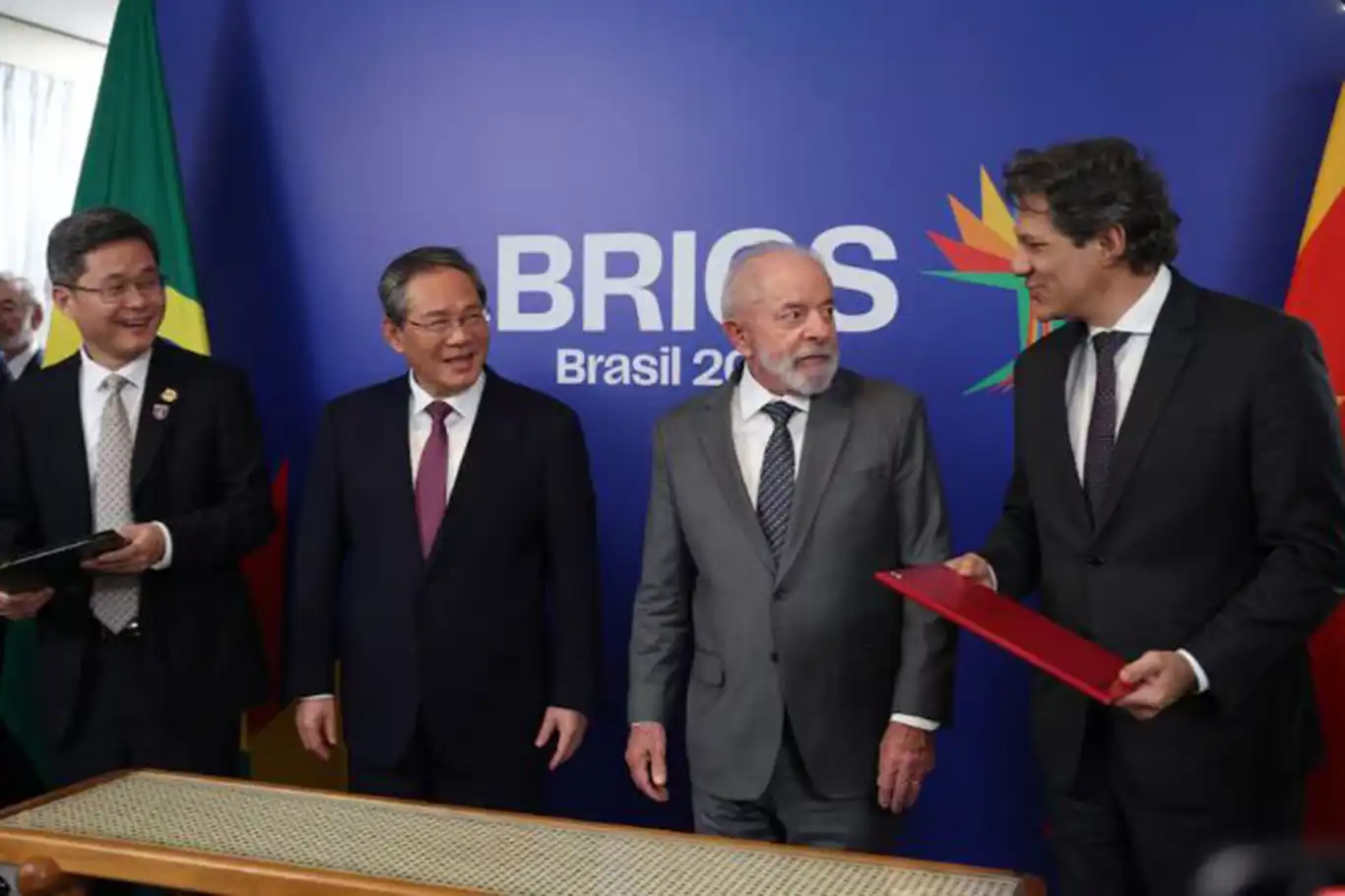BRICS summit in Rio to address global issues amid Trump tariff concerns


Leaders of the expanded BRICS bloc gathered in Rio de Janeiro on Sunday for a pivotal two-day summit, as the group of emerging economies faces mounting global challenges, from escalating Middle East conflicts to renewed trade tensions with the United States under President Donald Trump.
Hosted by Brazilian President Luiz Inácio Lula da Silva, the summit brings together representatives from the now 10-member bloc—Brazil, Russia, India, China, South Africa, Iran, Egypt, Ethiopia, Indonesia, and the United Arab Emirates. The gathering marks the first BRICS summit since the group’s 2024 expansion and comes at a time of geopolitical instability and uncertainty over the global economic order.
The summit’s agenda includes pressing global issues such as Israel’s recent attack on Iran, the worsening humanitarian crisis in Gaza, climate change, artificial intelligence, global health, and trade. However, discussions are expected to remain cautious, with member states seeking to avoid actions that might provoke a hostile reaction from President Trump, who has threatened to impose 100% tariffs on BRICS nations if they challenge the U.S. dollar's dominance.
Analysts suggest that the group’s moderate tone reflects growing concerns over U.S. trade retaliation, especially for Brazil, which has so far avoided major tariffs. President Lula is also using the summit as a platform to highlight Brazil’s leadership on climate and development ahead of the COP 30 talks in Belem later this year.
Several key leaders are notably absent. Chinese President Xi Jinping and Iran’s newly elected President Masoud Pezeshkian did not attend, while Russian President Vladimir Putin is participating remotely due to an active international arrest warrant related to the Ukraine war. Egyptian President Abdel-Fattah el-Sissi is also not present. Meanwhile, Saudi Arabia, invited to join BRICS in 2024, has yet to officially confirm its membership.
Debates over the final summit declaration are reportedly delicate. While some members, particularly Iran and Russia, have pushed for stronger language condemning Israeli aggression and supporting Gaza, others—such as India and Brazil—favor a more neutral stance to preserve internal consensus and international balance.
The cautious approach contrasts with last year’s more assertive summit in Kazan, where BRICS openly discussed alternatives to Western-dominated financial systems. In Rio, non-aligned members like Brazil and India are emphasizing cooperation over confrontation, seeking to steer the bloc away from an explicitly anti-Western posture advocated by China and Russia.
For President Lula, the summit provides a critical opportunity to showcase Brazil’s global influence, amid declining domestic approval ratings and legislative tensions at home. As global power balances shift and Trump’s protectionist agenda reshapes trade relations, the BRICS summit is poised to offer both challenges and opportunities for the world’s leading emerging economies. (ILKHA)
LEGAL WARNING: All rights of the published news, photos and videos are reserved by İlke Haber Ajansı Basın Yayın San. Trade A.Ş. Under no circumstances can all or part of the news, photos and videos be used without a written contract or subscription.
The U.S. President Donald Trump has indicated a potential shift in U.S. military support for Ukraine, suggesting a willingness to resume shipments of Patriot missile systems in response to growing concerns over civilian casualties in the ongoing war.
The BRICS group of emerging economies issued a strongly worded joint statement on Sunday condemning the recent Israeli military strikes on Iran, the ongoing occupation of Syrian and Palestinian territories, and the use of starvation as a method of warfare in Gaza.
French President Emmanuel Macron is set to begin a landmark three-day state visit to the United Kingdom on Tuesday.